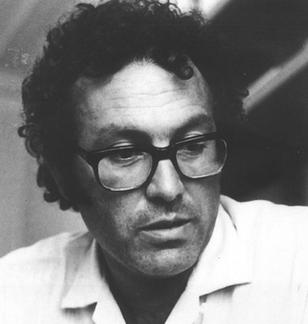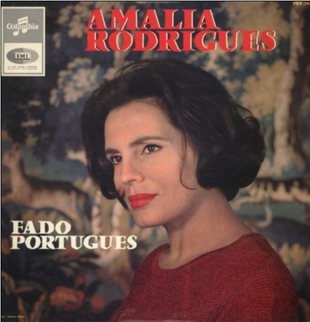Related Research Articles

Bossa nova is a relaxed style of samba developed in the late 1950s and early 1960s in Rio de Janeiro, Brazil. It is mainly characterized by a calm syncopated rhythm with chords and fingerstyle mimicking the beat of a samba groove, as if it was a simplification and stylization on the guitar of the rhythm produced by a samba school band. Another defining characteristic of the style is the use of unconventional chords in some cases with complex progressions and "ambiguous" harmonies. A common misconception is that these complex chords and harmonies were derived from jazz, but samba guitar players have been using similar arrangement structures since the early 1920s, indicating a case of parallel evolution of styles rather than a simple transference from jazz to bossa nova. Nevertheless, bossa nova was influenced by jazz, both in the harmonies used and also by the instrumentation of songs, and today many bossa nova songs are considered jazz standards. The popularity of bossa nova has helped to renew samba and contributed to the modernization of Brazilian music in general.

Portuguese music includes many different styles and genres, as a result of its history. These can be broadly divided into classical music, traditional/folk music and popular music and all of them have produced internationally successful acts, with the country seeing a recent expansion in musical styles, especially in popular music.

The culture of Portugal designates the cultural practices and traditions of the Portuguese people. It is rooted on the interactions between many different civilizations that inhabited the area during the past millennia. From prehistoric cultures, to its Pre-Roman civilizations, passing through its contacts with the Phoenician-Carthaginian world, the Roman period, the Germanic invasions of the Suebi, Buri and Visigoths, Viking incursions, Sephardic Jewish settlement, and finally, the Moorish Umayyad invasion of Hispania and the subsequent expulsion during the Reconquista, all have influenced the country's culture and history.

Carlos Paredes was a virtuoso Portuguese guitar player and composer. He is regarded as one of the greatest players of Portuguese guitar of all-time.

José Manuel Cerqueira Afonso dos Santos, known professionally as José Afonso and also popularly known as Zeca Afonso, was a Portuguese singer-songwriter. He is widely regarded as one of the most influential figures in the history of Portugal's folk and protest music scene. His music played a significant role in the resistance against the dictatorial Estado Novo regime, making him an icon in Portugal.
The following is a list of Portugal-related articles. Those interested in the subject can monitor changes to the pages by clicking on Related changes in the sidebar.

Portuguese hip hop, more commonly called hip hop tuga, is the Portuguese variety of hip hop music. It differs from mainstream hip hop because it has strong influences from African music, from Lusophone Africa, reggae, zouk and fado.
Marrabenta is a popular style of Mozambican dance music combining traditional Mozambican dance rhythms with Portuguese folk music. It was developed in Maputo, the capital city of Mozambique, during the 1930s and 1940s.

Piri piri, often hyphenated or as one word, and with variant spellings peri-peri or pili pili, is a cultivar of Capsicum frutescens from the malagueta pepper. It was originally produced by Portuguese explorers in Portugal's former Southern African territories and then spread to other Portuguese domains.

Rui Manuel Gaudêncio Veloso is a Portuguese singer-songwriter and musician. Commonly called "The father of Portuguese rock", Veloso was a major figure in the boom of Portuguese rock music in the 1980s. His 1980 debut album Ar de Rock, which includes the hit single "Chico Fininho", is considered a landmark of Portuguese rock. During the 1980s and 1990s, Veloso released numerous other successful singles and albums in Portugal.

Sofala, at present known as Nova Sofala, used to be the chief seaport of the Mwenemutapa Kingdom, whose capital was at Mount Fura. It is located on the Sofala Bank in Sofala Province of Mozambique. The first recorded use of this port town was by Mogadishan merchants. One possible etymology for Sofala is "go and cultivate" in the Somali language, showing the city as a hub for gold.

Carlos Manuel de Ascenção do Carmo de Almeida, better known as Carlos do Carmo, was a Portuguese fado singer.
The culture of Mozambique is in large part derived from its history of Bantu, Swahili, and Portuguese rule, and has expanded since independence in 1975. The majority of its inhabitants are black Africans. Its main language is Portuguese. Its median religion is Roman Catholicism, but only about 40% of the inhabitants are Christian. It has a rich history in the areas of arts, cuisine, and entertainment.

Paulo de Carvalho is a Portuguese singer.
Ricardo Achiles Rangel was a Mozambican photojournalist and photographer.
Dhanoday Shrivastav, known professionally as Baluji Shrivastav, is an Indian/British musician and instrumentalist who plays a variety of traditional Indian instruments including the sitar, dilruba, surbahar, pakhavaj and tabla.

Gisela João Gomes Remelho is a Portuguese fado singer.

Júlio Resende is a Portuguese pianist and composer. He is a pioneer of a unique and new genre called "Fado-Jazz". His improvisation techniques are transversal to his aesthetics, and articulate different musical genres, from Jazz, Fado, Classical Music and even Electronic Music.

Fado Português is a fado album recorded by Amália Rodrigues and released in June 1965 on the Columbia label. The album was recorded the Valentim de Carvalho de Paço de Arcos studios. Amália was accompanied by musicians Domingos Camarinha on Portuguese guitar and Castro Mota and Martinho d'Assunção on viola. The cover photograph was by Augusto Cabrita. Eight of the 12 tracks on the album were written by Alain Oulman.
Tony Haynes was an English composer and bandleader best known for his work with Grand Union Orchestra since 1982. He played piano and trombone.
References
- ↑ "Vocalista do Trio Odemira está desaparecido desde esta tarde". TV 7 Dias (in European Portuguese). 2019-06-04. Retrieved 2020-10-20.
- ↑ "Mingo Rangel - Grand Union Orchestra". grandunion.org.uk. Retrieved 2020-10-20.
- ↑ Nascimento, Frederico Lopes / Marco Oliveira / Guilherme. "Mississe". CinePT-Cinema Portugues (in European Portuguese). Retrieved 2020-10-20.
- ↑ "UCCLA apresenta iniciativa A Cantar em Português #FICOEMCASA | UCCLA". www.uccla.pt. Retrieved 2020-10-20.
- 1 2 "The Rhythm of Tides - Grand Union Orchestra". grandunion.org.uk. Retrieved 2020-11-12.
- 1 2 "Shows - Grand Union Orchestra". grandunion.org.uk. Retrieved 2020-11-12.
- ↑ Chave d'Ouro - Chave d'Ouro | Songs, Reviews, Credits | AllMusic , retrieved 2020-10-20
- ↑ Queens of Fado: The Next Generation - Various Artists | Songs, Reviews, Credits | AllMusic , retrieved 2020-10-20